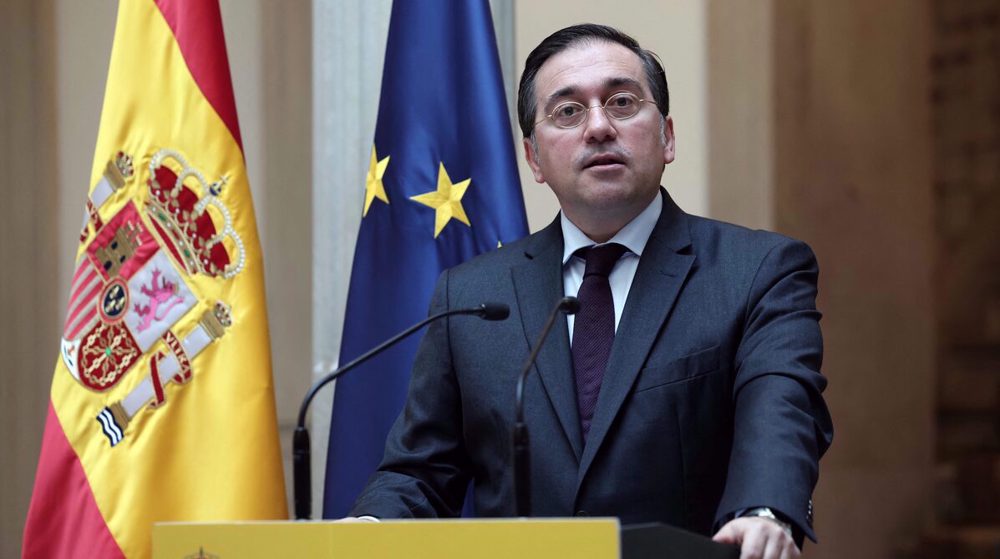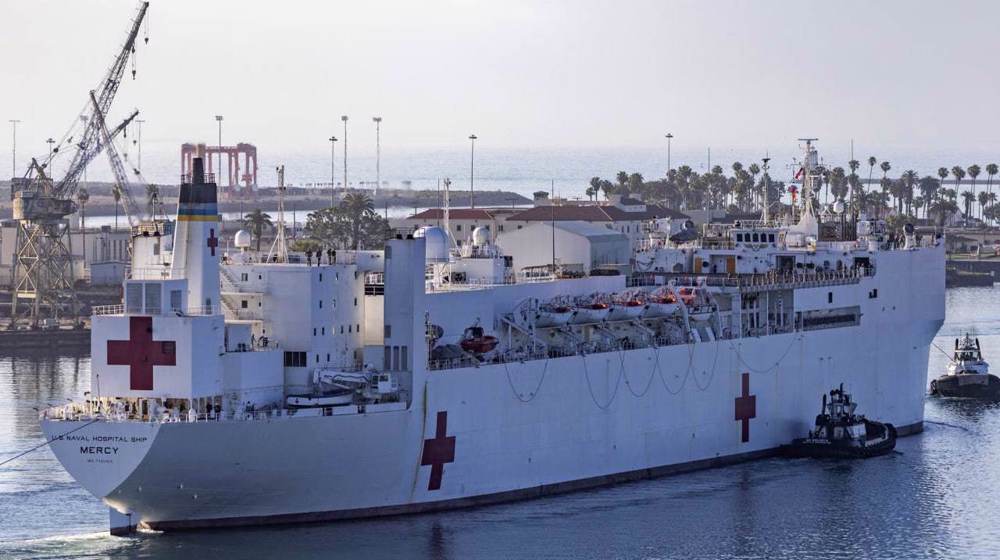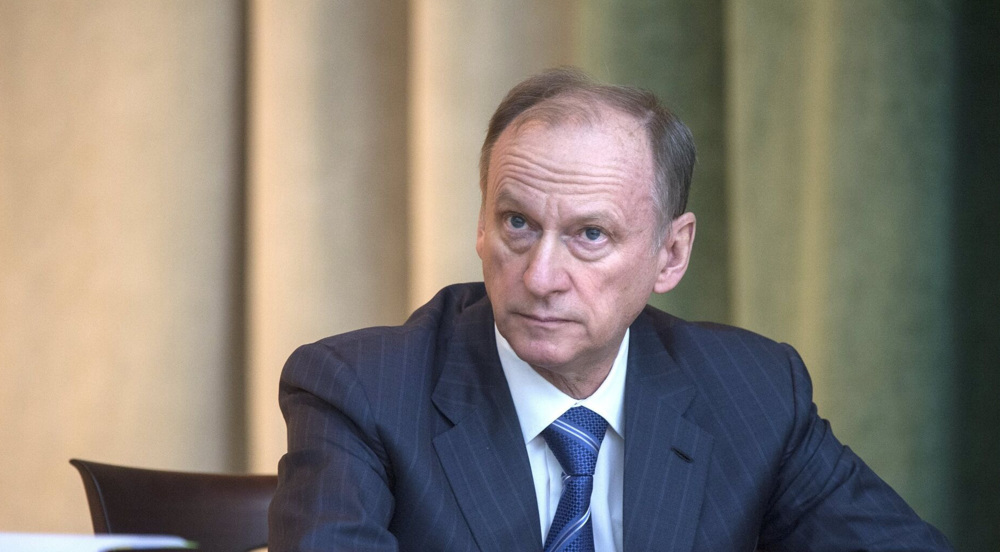EU leaders to hold crisis teleconference to tackle coronavirus
The leaders of the European Union have decided to hold an emergency teleconference in order to coordinate a joint response to the coronavirus outbreak.
EU Council President Charles Michel, who chairs EU summits, said on Twitter on Monday that he would hold a "conference call shortly" with the bloc's leaders to discuss the issue.
“Following consultations I will hold a EUCO members conference call shortly on COVID-19 to coordinate EU efforts," Michel said.
"We need to cooperate in order to protect the health of our citizens."
The decision to hold an emergency meeting -- which would probably be on Tuesday afternoon—comes as Europe is struggling to counter the economic impact of the epidemic.
The novel coronavirus, which first emerged in the Chinese city of Wuhan in Hubei, has killed more than 3,800 people and infected over 108,000 in at least 95 countries — the majority in mainland China.
The economic damage has also intensified, with business districts beginning to empty and stock markets tumbling.
Analysts say the world economy is headed for a sharp downturn, adding that several countries could plunge into recession this year.
Separately on Monday, European Commission President Ursula von der Leyen said the EU executive was considering all options to help the economy.
The commission was assessing conditions to grant more flexibility to states in providing public subsidies to crisis-hit sectors, she added.
First coronavirus case detected at EU Commission
Meanwhile, a first case of coronavirus has been detected among staff at the European Commission.
The woman came back from Italy and has been in quarantine since last week, an EU official said on Monday. The EU Commission, the 27-nations bloc's executive, has a staff of around 32,000.
Last week, another EU body, the European Defense Agency, reported a case of coronavirus among its staff. The official had also recently traveled to northern Italy. The Council of the European Union, another body, also decided to send home close to 50 persons after two staff members tested positive to the virus.
The European Parliament has moved a plenary session that was scheduled for next week in the French city of Strasbourg to Brussels because of concerns about the coronavirus risk. It is now discussing whether to cancel all together the monthly gathering.
Separately, Belgium’s health ministry said on Monday the number of coronavirus cases in the country had reached 239, while it decided to limit tests to seriously ill patients and healthcare professionals due to shortages of reagents.
IMF calls for ‘substantial’ stimulus against coronavirus
Governments should deploy "substantial" stimulus and international coordination to counteract the economic impact of the spreading coronavirus epidemic, the International Monetary Fund's chief economist says.
Given the "acute shocks" caused to economies, consumers and businesses, Gita Gopinath said on Monday "policymakers will need to implement substantial targeted fiscal, monetary and financial market measures to help affected households and businesses."
That includes "cash transfers, wage subsidies and tax relief" as well as interest rate cuts and financial market support by central banks.
Given the global economic linkages, "the argument for a coordinated, international response is clear," she said in a blog post.
Yet such a strategy seems to be lacking thus far.
The IMF has already warned that the impact of the COVID-19 outbreak will slow growth in the world economy to below the 2.9 percent posted last year.
IMF chief Kristalina Georgieva said last week the epidemic "is no longer a regional issue, it is a global problem calling for global response."
She warned that the financial need could top $1 billion.
The virus has shuttered factories, disrupted travel, delayed conferences and sporting events and infected more than 110,000 people worldwide while killing more than 3,800, mainly in China, and is accelerating in other countries.
Gopinath said the impact is seen in production cuts hitting companies across the globe that depend on parts from China, as well as consumption, since people are reluctant to go out and spend money.
The result then ripples into financial markets as borrowing costs rise when "banks suspect consumers and firms may be unable to repay their loans on a timely basis."
"Higher borrowing costs will expose financial vulnerabilities that have accumulated during years of low interest rates, leading to a heightened risk that debt cannot be rolled over," she said.
Some countries already have taken steps, Gopinath noted. Italy, the country hardest hit in Europe, "has extended tax deadlines," and Korea has introduced wage subsidies.
The US Federal Reserve last week announced an emergency interest rate cut, and on Monday significantly increased its daily cash injections into money markets to $150 billion to ensure ample liquidity amid the virus uncertainty.
That was just what Gopinath called for, saying such moves "can lift confidence and support financial markets." And she noted that "actions by large central banks (are) also generating favorable spillovers for vulnerable countries."
Albania halts schools, Italy flights, ferries over coronavirus
Albania has reported its first coronavirus infections - a man who returned from Italy and infected his father, prompting the government to shut down schools for two weeks and cancel flight and ferry services to Italy until April 3.
The 28-year-old man and his 54-year-old father, who live in the capital Tirana, were in stable condition without complications, the health ministry said on Monday, as it began tracking about two dozen persons they had been in close contact with.
"Our measures today will be...to suspend direct flights or (ferry) travel from northern Italy and practically from all red zones that have been isolated completely (in Italy) until April 3, and to shut down schools for two weeks...," Prime Minister Edi Rama told an emergency cabinet meeting.
Anyone entering Albania from quarantined areas of Italy, which has suffered Europe's deadliest outbreak of coronavirus, will have to self-isolate and face punishment if they do not do so, Health Minister Ogerta Manastirliu said.
Rama said authorities had also ordered cancellations of all large public gatherings, including cultural events, and were asking sporting federations to cancel scheduled matches.
More than 400,000 Albanians live in Italy, Albania's main trading partner, across the Adriatic Sea.
Other neighbors of Italy also took steps to curb the spread of the virus, with Switzerland announcing checks of Italian commuters' Swiss work permits and Austria saying it plans spot health checks of people crossing its southern border.
Albania's garments industry is also been hard hit by the coronavirus crisis as its Italian contractors are having trouble importing fabrics from China, where the epidemic began, and placed no orders over the past few weeks.
Under fire over virus, Japan’s Abe may seek emergency declaration
Japan is set this week to revise a law allowing Prime Minister Shinzo Abe to declare a state of emergency over the coronavirus if needed, as he takes heat for his handling of the outbreak ahead of the Tokyo Olympic Games.
In perhaps his biggest test since returning to office in 2012, Japan's longest-serving premier has been accused by critics of initial lack of leadership then over-abrupt steps like school closures that left parents and employers scrambling.
Japan has more than 1,200 coronavirus cases, including about 700 from a cruise ship, public broadcaster NHK said. Sixteen people have died, including seven from the liner.
Among criticisms is that Abe's government was too slow to curb visitors from China - a big source of revenue - after the outbreak originated there. In an opinion poll released by NHK on Monday, 43% said they approved of Abe's handling of the outbreak, versus 41% who did not.
Commentators have also said Japan lacks sufficient capacity to test for the virus, while failing to mobilize what capacity it has, leading to suspicions that the virus is spreading faster than data show. Vigorous testing programs in countries like South Korea have detected high numbers of infections.
Speculation - denied by organizers - is swirling that the outbreak will scupper Japan's dream of hosting the Tokyo Olympics, especially if a state of emergency is declared.
In NHK's opinion poll, 45% said the Tokyo Olympics cannot be held as planned, versus 40% who said they can.
The government plans on Tuesday to submit to parliament a bill to revise a 2012 law, enacted after the 2009 epidemic, so it can be applied to the coronavirus if necessary.
Parliament is expected to sign off on Friday.
The 2012 law was enacted while Abe's Liberal Democratic Party was in opposition.
Officials have said it could not be applied to the coronavirus without changes, although opposition parties and other critics say reinterpreting it is enough.
The law would let the prime minister declare a state of emergency if the disease poses a "grave danger" to lives and if its rapid spread could have a huge impact on the economy. The virus is already increasing Japan's recession risk.
Governors in hard-hit regions could then ask residents to stay inside, close public facilities, expropriate land and buildings for medical facilities and request or order emergency transport of goods. The state of emergency could last up to two years with a possible one year-extension.
In the virus-hit northern island of Hokkaido, the governor declared a state of emergency late last month, although he acknowledged there was no legal basis to do so.
Abe has already requested that schools nationwide close and large-scale events be pared back or canceled.
"Abe could apply the law by re-interpreting it. He's good at that," said Masahiro Kami, head of the Medical Governance Research Institute and a critic of the government's response.
Abe's government in 2014 controversially reinterpreted the post-war, pacifist constitution to let troops fight abroad.
"He wants to appeal (to the public) because things are not going well," Kami said. He added the most urgent issue was not further limits on public activities, but beefing up virus testing and early treatment of elderly and other high-risk patients.
Abe has not made clear what exactly would trigger a state of emergency, repeating on Monday that the revision was to prepare for a "worst-case scenario."
"I suspect Abe doesn't want to declare a state of emergency because it would be killing the Olympics himself," said Koichi Nakano, political science professor at Sophia University.
Nigeria has second confirmed case
Nigeria has a second confirmed coronavirus case, the country's health minister said on Twitter on Monday.
The first case was an Italian man who flew in to southwestern commercial capital Lagos on February 24 from Milan on a Turkish Airlines flight that had a connection in Istanbul.
The following day he traveled to neighboring Ogun state and was in the country for nearly two full days before being isolated.
The case, the first in sub-Saharan Africa, prompted fears of an outbreak in Lagos, a city of 20 million people in a country of some 200 million inhabitants.
But until Monday it was the only confirmed case in a country that won plaudits for preventing a major outbreak of the deadly Ebola virus in 2014.
Health Minister Osagie Ehanire said the second case had been in contact with the Italian man, who is a vendor working for cement company Lafarge Africa PLC and is being treated at a hospital in the Yaba dristict of Lagos.
The Lagos state health commissioner, Akin Abayomi, said on Saturday Nigerian officials were experiencing "some challenges" in tracking down people who were on the flight with the Italian.
Iran Armed Forces shoot down US F-15 fighter jet near Kuwait border
IRGC, Army launch fresh waves of missile strikes against Israeli, US targets
Red Crescent Society: 555 people killed across Iran in US-Israeli onslaughts
Operational concerns delayed US-Israeli aggression against Iran for a week: Report
Iran slams Israeli attacks on Lebanon, warn UNSC’s inaction to embolden regime
Iran says has ‘no choice’ but to fight back, holds no enmity toward American people
Bahraini police assaults crowds mourning loss of Ayatollah Khamenei
Iran posed no imminent threat to US: Pentagon tells Congress


















 This makes it easy to access the Press TV website
This makes it easy to access the Press TV website